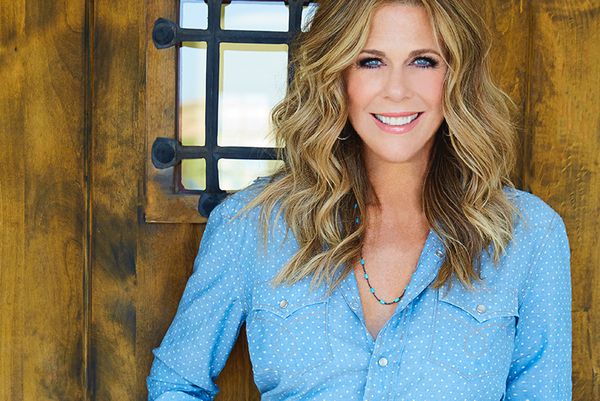On her hit HGTV television series, “No Demo Reno,” Jenn Todryk, 35, is known for her high-energy approach to remodeling homes without a total demolition.
Through her blog and Instagram account, Todryk gets candid with her fans about her design work, family and how she lives with Hashimoto’s disease, a chronic autoimmune thyroid condition that affects about 5 in 100 people, most of them women.
About 20 million Americans have some form of thyroid disease, and as many as 6 out of 10 may not even know it.
Although the American Thyroid Association recommends checking your thyroid function beginning at age 35, Todryk was 26 when she was diagnosed with hypothyroidism (an underactive thyroid) in 2014 after experiencing some unusual symptoms.
“I remember being bundled up in a sweatshirt and still freezing,” Todryk said. “Or it would be 100 degrees outside and while everyone else was complaining about the heat, I’d be cold.”
Since her mom had been diagnosed with hypothyroidism years before, Todryk knew symptoms like fatigue and sensitivity to cold could be signs of an underactive thyroid. A simple blood test confirmed her suspicion.
Two years before her diagnosis, in March 2012, Todryk learned she was pregnant for the first time. Three months later, she had a miscarriage. Seeking answers, and knowing that hormonal imbalances (including prolactin, thyroid hormone and progesterone) can often result in a miscarriage, Todryk asked her OB-GYN if she could have blood tests to check her hormone levels.
“I was very disappointed when the OB-GYN I was seeing at the time of my miscarriage told me he didn’t want to check my hormone levels until I had miscarried three times,” Todryk said. “I thought that was crazy, and I immediately changed doctors.”
Read: 5 Steps to Take When Your Healthcare Provider Won’t Listen to You >>

After running blood tests, Todryk’s new OB-GYN discovered her progesterone levels were critically low. She learned that having an underactive thyroid makes it hard for a woman’s body to make progesterone and that low progesterone levels are also associated with an increased risk of miscarriage.
“My doctor explained that progesterone is the hormone that keeps the baby alive until the placenta can take over and do its job,” Todryk said. “I really believe that by checking my hormone levels, my second OB-GYN saved me from having another miscarriage.”
In 2013, Todryk and her husband, Mike, welcomed their first son, Von, followed by daughters Berkley in 2015, and Vivienne in 2018.
It took four years after the birth of her first child for Todryk to learn she had Hashimoto’s disease, a chronic autoimmune disorder that can lead to hypothyroidism, or in some cases, hyperthyroidism (an overactive thyroid).
“I started seeing a wonderful functional medicine doctor who decided to run some more in-depth medical tests,” Todryk said. “After learning I had Hashimoto’s, I began taking a natural form of thyroid hormones.”
Although her Hashimoto’s is finally under control, Todryk said she does experience the occasional flare-up where she feels overwhelmingly tired and gets intolerant to cold.
“When I have flares, the fatigue can be so bad that I've even fallen asleep sitting up," Todryk said. "I've learned there are days when I have to be honest and say, 'I can't do this today.’"
She’s posted about days when her fatigue is so bad that she needs to listen to her body and take a break. Todryk gets a lot of feedback from fans who say they appreciate her candor about the realities of living with thyroid disease as well as tips for managing the condition.
“I’ve found it’s really important to keep a consistent sleep schedule and to avoid stress as much as possible,” she said. “I also take vitamin supplements.” Todryk also decided to make some changes to her diet.
“I tried going gluten-free and dairy-free at the same time and did see some improvement with my symptoms,” she said. “My diet today is about 70% dairy-free and 40% gluten-free.”
Todryk noted that what works for her might not work for everyone. Since each person has different requirements to manage their thyroid condition, she encourages women to talk to their healthcare providers about what approach is best for them.
“I often receive messages saying, ‘If you can do this, I can do this too. Thank you for saying you had a bad day or that you’re tired,’” Todryk said. “One woman wrote to me saying she thought she had depression when it turned out to be severe hypothyroidism.”
In addition to letting women know they aren’t alone in their health journey, Todryk believes that many women are being misdiagnosed with depression when they are really dealing with hormonal issues.
“I think women should undergo annual hormone testing, just like they do with Pap smears,” she said.
Todryk hopes that sharing her health journey will help educate and empower other women to take charge of their own well-being.
“It’s so important for women to be their own advocates and to find a good [healthcare provider] who can work with them to improve their health.”







